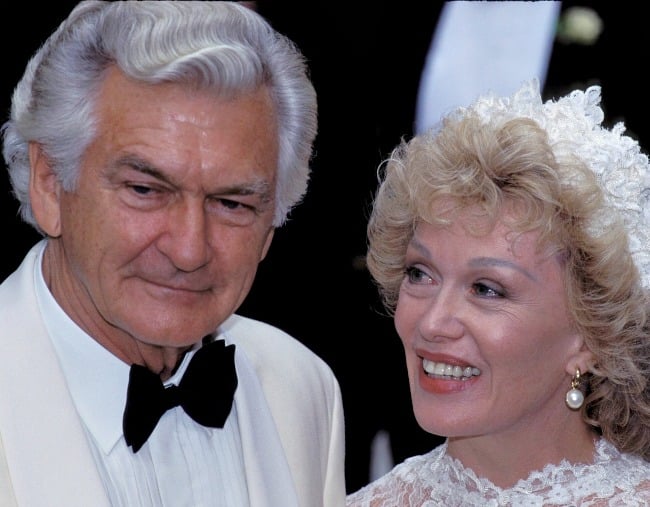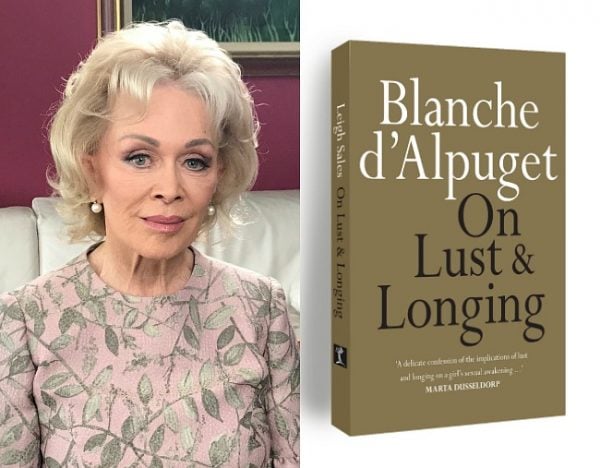
It was April 1970 when Blanche d’Alpuget first met Bob Hawke. They were at a party in Jakarta, where the writer was living with her husband, Antony Pratt. As she sat on a swinging chair, answering the then-ACTU president’s questions about the city, she felt a connection between them. It wasn’t a spark, exactly; more of a click.
“I hadn’t been long married and I was very keen on my husband,” the 74-year-old told Mia Freedman on Mamamia’s No Filter podcast in 2018. “I didn’t know who the hell [Hawke] was; I thought his name was Robin.”
With one meeting six years later that changed. D’Alpuget was interviewing Hawke for a biography on arbitrator Sir Richard Kirby. By then her marriage was “going down the drain”, and when she again came face to face with the father of four, “the click was different”, the chemistry strong.
It was an encounter that would plunge the couple on a now infamous love affair. One that endured for 25 years; before and beyond Hawke’s 13-year Prime Ministership, in spite of their other liaisons, and through the dying days of their respective marriages.
“It was the ’70s, and I was a feminist, I was in the women’s movement. We didn’t believe in monogamy, we believed in liberty, equality and sorority and supporting other women, and affairs were par for the course. They were part of that life,” she said. “But one tried to be discreet and not hurt anybody.”
Though “madly in love”, the pair remained just lovers for more than two decades in the interests of Hawke’s marriage to Hazel Masterson, his career and, as d’Alpuget later noted, “the nation”. Ultimately, the Labor leader’s decision to divorce his wife of 38 years came down to one moment – a pause.





























































































